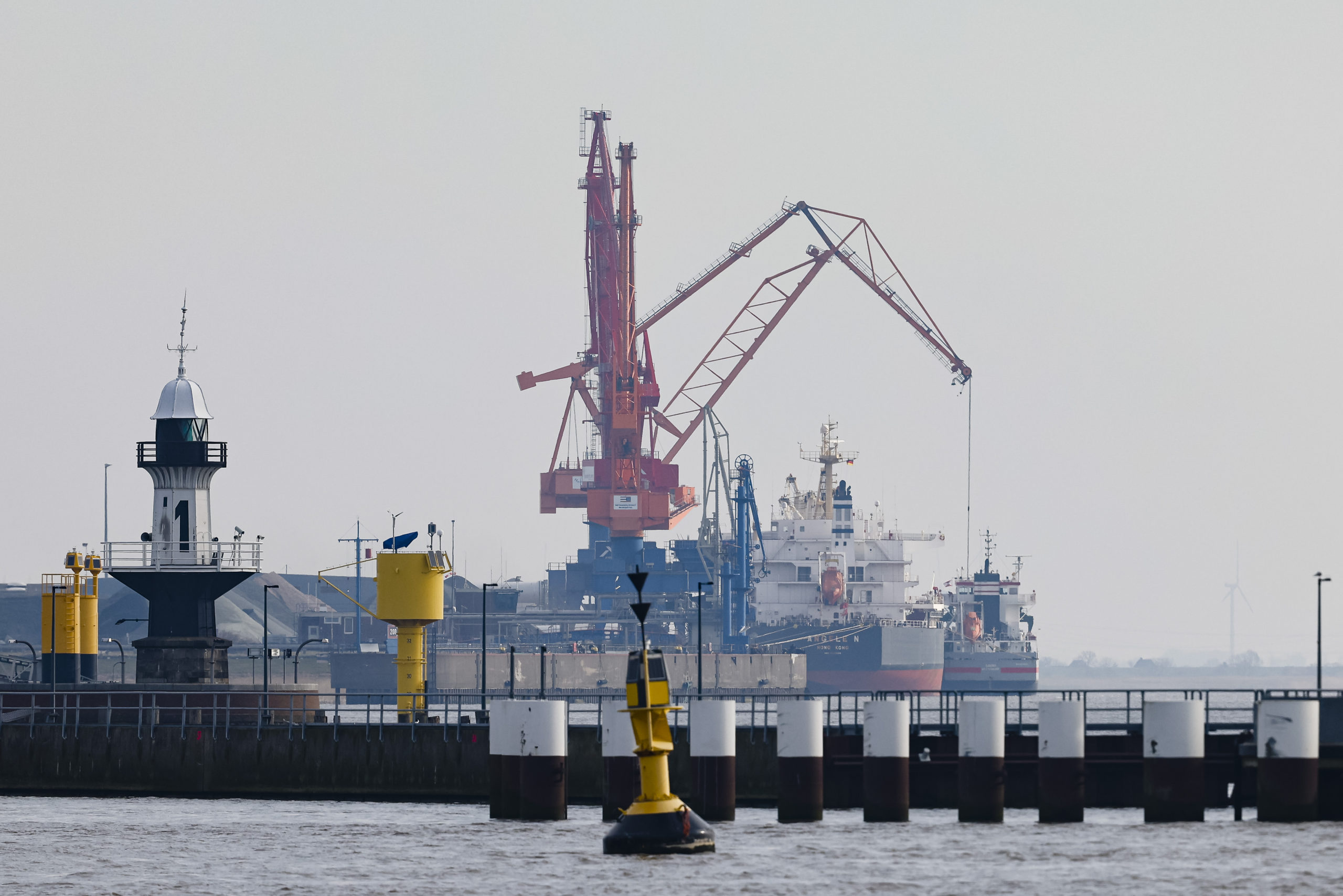 1
1 1
1
BRUSSELS (AP) — The European Union is looking to the United States to help reduce its reliance on Russian energy and will be discussing major shipments of liquefied natural gas over the next two years during a meeting with President Joe Biden on Thursday.
EU Commission President Ursula von der Leyen told EU lawmakers Wednesday that she will talk with Biden about “how to prioritize LNG deliveries from the United States to the European Union in the coming months. We are aiming at having a commitment for additional supplies for the next two winters.”
She proposed that all natural gas storage facilities in the 27-nation bloc be topped up to at least 80% capacity for next winter and hopes that U.S. fuel will be a big part of it.
On the eve of a two-day summit of EU leaders and her meeting with Biden, the European Commission said the bloc must quickly revamp its energy policy before next winter and another price crisis leaves millions of EU citizens with bills they cannot pay.
Energy experts say filling reserves when the natural gas market is tight will mean higher prices for consumers. That highlights the need for more U.S. supply.
EU leaders have already vowed to wean the bloc off its dependence on Russian energy by 2027, but tangible measures still have to be put in place. On top of mandatory high storage levels, the commission also wants EU nations to agree to the joint purchase of natural gas and LNG that would be similar to its system of buying COVID-19 vaccines in huge quantities for equitable distribution.
The draft conclusions of the summit obtained by The Associated Press include that “with a view to next winter, Member States and the Commission will urgently … work together on the joint purchase of gas, LNG and hydrogen.” The details would still need to be worked out.
“We are stronger when we use the power of our single market and deliver solidarity,” von der Leyen said. “Instead of outbidding each other and driving prices up, we should pull our common weight and stop buying gas together as … 27 different member states.”
The EU imports 90% of the natural gas used to generate electricity, heat homes and supply industry, with Russia supplying almost 40% of EU gas and a quarter of its oil.
Currently, up to 30% of gas consumption during a winter comes from storage. After demanding a level of 80% storage capacity this year, the commission wants it to go to 90% next year.
To ensure the storage facilities could not be controlled by foreign interests that could manipulate prices and volume, the commission wants a certification system “to address essential security interests.”
In Germany, for example, Russia’s Gazprom owns several storage facilities. The German government is in the process of passing a law requiring the storage facilities to be filled to capacity by the winter, to prevent any manipulation with volumes.
To deal with runaway energy prices, several nations are looking at imposing price caps on gas, saying the market conditions have become unhinged from reality. But Germany and the Netherlands have raised objections, fearing suppliers would simply sell elsewhere.
“I say this quite openly,” German Chancellor Olaf Scholz told the German parliament, “there will be no removal of market mechanisms or permanent subsidies, particularly for fossil fuels. This would not be fiscally sustainable, and ecologically it would give the completely wrong incentives.”
However, a high-level French official who spoke on condition of anonymity in line with government policy said Paris considered it an option “we are looking into with interest.”
The EU commission said such capping “can give an important signal that the EU will not pay any price for gas but such an intervention should only be envisaged as last resort, as it entails some drawbacks in terms of security of supply of gas flows.”
___
Associated Press journalist Frank Jordans contributed from Berlin and Sylvie Corbet from Paris.